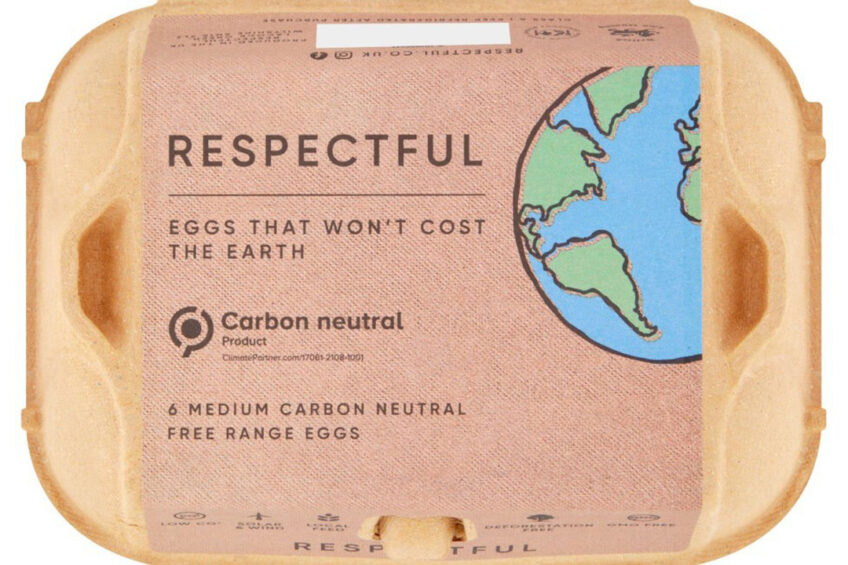Carbon-neutral eggs going down a storm

Companies in the UK are at the forefront of bringing to the market carbon-neutral eggs, cutting out bought-in feed, which typically makes up more than 85% of an egg’s carbon footprint.
Retailer Morrisons has launched its first lower environmental impact store in Little Clacton, Essex, which will be the first to trial the company’s carbon-neutral eggs. The 320,000 free-range hens on 10 farms are being fed on insects and a supplementary diet of British beans, peas, and sunflower seeds.
Respectful eggs that “won’t cost the earth”
It follows the announcement by Sainsbury’s in the autumn that was stocking a brand of carbon-neutral eggs. Respectful eggs come from white hens which are not fed soya, with the replacement field beans milled on-site to reduce food miles required to feed the birds. White birds live 40% longer than brown hens and consume less feed, all contributing to a lower environmental impact.
The field beans and crops are directly drilled, meaning soils are not ploughed. As well as meaning fewer tractor movements, reducing fuel use, this vastly reduces soil compaction.
Purely Organic certified carbon-neutral
Meanwhile, the UK’s largest free-range egg producer, Noble Foods, has announced that its Purely Organic brand has been certified carbon neutral by the Carbon Trust.
The egg brand, which is the company’s fastest-growing product and is sold in Tesco and Sainsbury stores, has an 18% share of the organic egg market and new carbon-neutral branded packs will be available on supermarket shelves from the end of July.
Glenn Evans, Noble Foods’ group environmental manager, said shoppers felt that sustainability was extremely important: “Therefore we believe it’s our responsibility to take a market-leading step forward in carbon reduction, to ensure a more sustainable future for customers and producers alike.”
The Carbon Trust said it was always trying to make it easier for customers to shop more sustainably: “We’re happy to share that we’ve certified Noble Foods’ Purely Organic eggs as carbon neutral,” it said on Twitter.
Research by Promar International recently found that in trials total emissions per kg of eggs worked out at 3.24kg CO2/KG eggs, based on the Eggbase carbon calculator.








